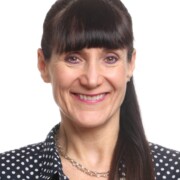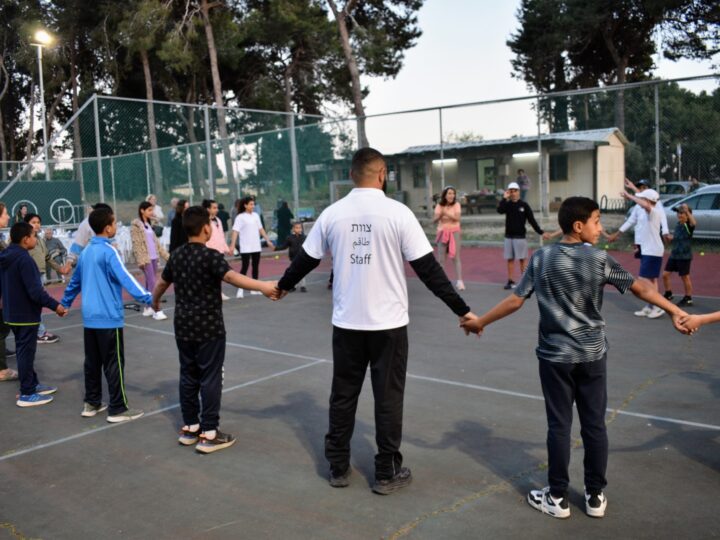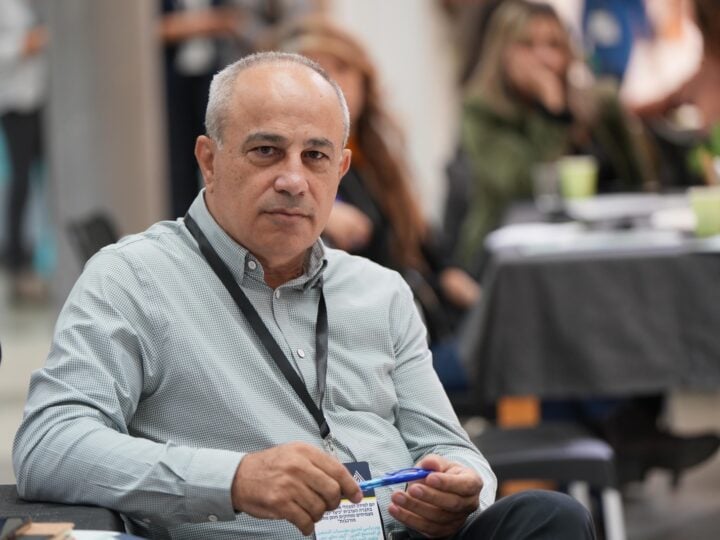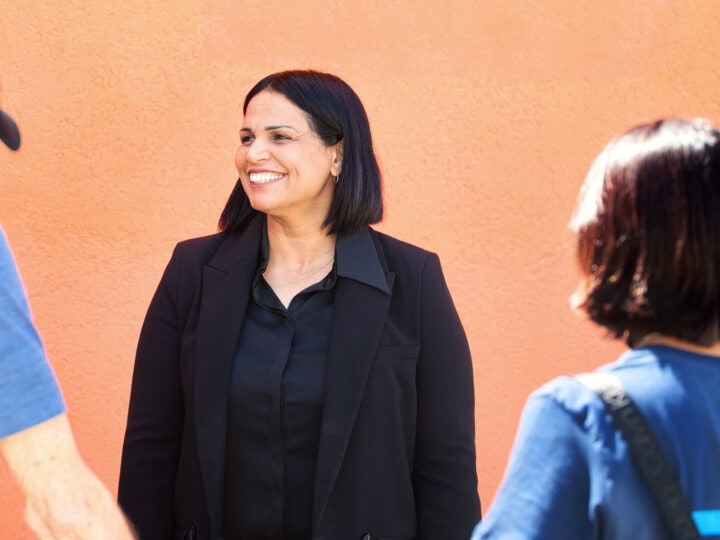Emil Ziada, a 17-year-old living in Ramla, said it always bothered him to see elderly people waiting… and waiting… at bus stops “because they were not able to access the bus schedules on computers or on smartphones.”
While modern technology makes it easier for some people, Ziada says, it also means that “a lot of people are left behind.”
As a participant in Net@, a youth program sponsored by Appleseeds, a nonprofit organization based in Ramla that aims to create digital equality in Israel, Ziada and 15 other Net@ participants organized “Digital Ramla.”
The students put popup stands in public places such as malls, shopping centers and the outdoor market. The volunteers approached older people and tried to help them with problems that technology can solve, such as scheduling Zoom meetings with family members living in other places.
Ziada said the project was so successful that people often returned to the popup stands for more help.
Locked out
Appleseeds CEO Anat Tzur tells ISRAEL21c that more than one million Israelis are computer illiterate.
Among them are Holocaust survivors, senior citizens, social welfare beneficiaries, people in the ultra-Orthodox (Haredi), Bedouin and Ethiopian communities, and residents of the geographic and social periphery.
“All these people are locked out of vital rights and quality of life such as government benefits, healthcare services, and even leisure activities,” Tzur said.
“People who aren’t digital-literate can’t make appointments with doctors, get on the bus because they can’t load money on their bus card, or even go to the post office,” Tzur said.
To equip people with relevant technological and digital skills for life, Appleseeds has 20 branches all over Israel, from Kiryat Shemonah in the north, to Eilat in the south.
Tzur said that when Appleseeds began in 2000, its founders already recognized the need to help all sectors of Israeli society become computer literate.
The organization used to be based in North Tel Aviv but then moved its headquarters to Ramla with the specific goal of being where the needs are greatest.
At the Wohl Campus in Ramla, the organization runs a variety of activities throughout Israel. All the programs are completely free of charge.
Upward mobility
Technology is a “key mechanism for upward mobility within Israeli society,” Tzur said.
And while Israel is known as the startup nation, only 9 percent of Israelis work in high-tech. Of those, only 3% are Haredi, 2% Arab and 30% women.
Every few months, Appleseeds runs a technological bootcamp for about 50 trainees from various sectors, teaching computer skills including website development, graphic design and advanced coding; as well as soft skills such as resume writing and interview preparation.
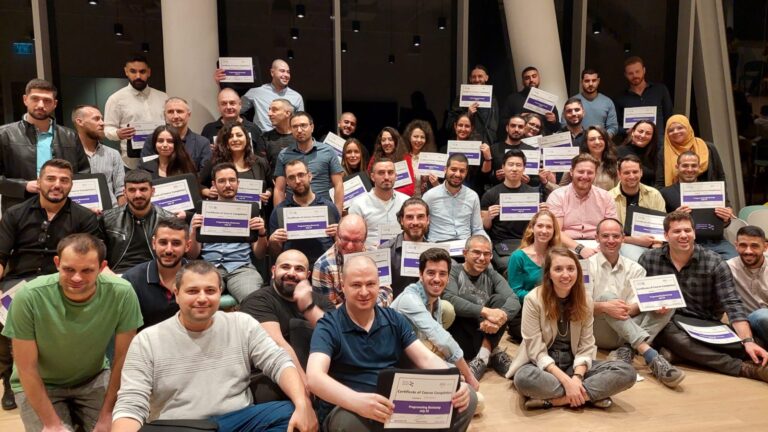
The organization works with a wide array of leading technology companies in Israel and around the world to place thousands of people each year in high-quality technology employment.
Incubator for shared life
The Net@ Youth Technology Movement focuses on technology training and leadership development for disadvantaged youth.
In addition, Tzur said that Net@ may be the only Israeli youth movement that integrates Jewish, Christian, Druze and Muslim participants, serving as “an incubator for shared life.”
“Net@ encourages its students embrace diversity, dialogue and collaboration from a young age,” Tzur said.
Operating since 2003, Net@ provides students from fifth to 12th grade with practical technology skills, including website and app development and gaming.
The program also encourages students to give back to their communities, as Ziada and the other volunteers did in Ramla.
Tzur said that Net@ alumni choose technology 60% more often than their peers when pursuing academia, army service and employment, and they go on to earn 20% more than their peers at their first job.
Connecting the unconnected
Appleseeds also focuses resources on what the organization calls “Digital Lifestyle,” which teaches Israelis essential digital literacy skills such as how to navigate a smartphone, order groceries and medication, pay bills and claim government benefits online.
There are 150 staff and field workers around Israel who work with marginalized communities, “literally connecting the unconnected,” Tzur said.
More than 80,000 people have benefited from Appleseeds programs each year.
One of the board members is successful entrepreneur Koby Nizri, CEO and founder of 44 Ventures, named after Road 44 connecting Ramla to Tel Aviv.
Nizri grew up in Ramla, and his childhood friends from the city are also his partners in his private equity group.
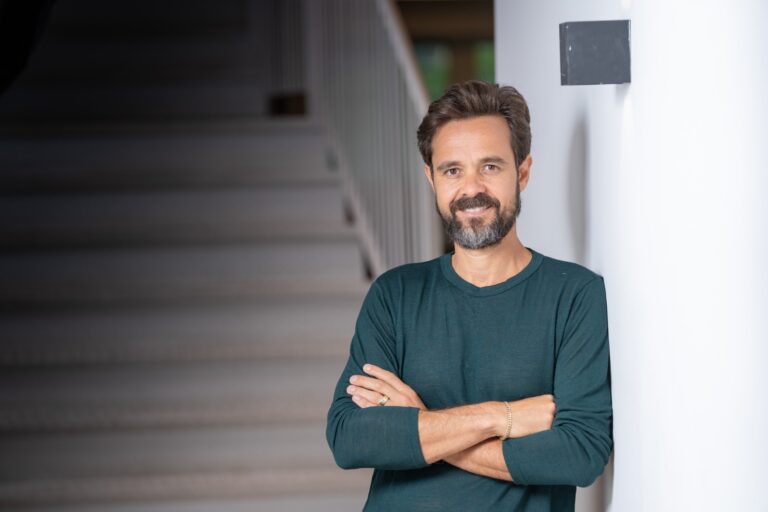
When he first heard of Appleseeds, he felt it was a “match made in heaven.”
Nizri’s company invests in and promotes entrepreneurs whom traditional funds may have overlooked, he said.
Nizri said he wants to help Appleseeds encourage young entrepreneurs just like him.
“Appleseeds’ activity is aligned with my personal story and with 44 Ventures,” said Nizri, who stresses that he tries to instill in those who live in cities like Ramla that “they can dream big, too.”
Tzur adds that by helping to reduce digital inequality, Appleseeds helps Israel “become the startup nation for all.”





